Having to grow up in a dysfunctional household is traumatizing enough. Topping that, adults from dysfunctional families have a cross to bear for a very long time.
You must have seen the term ‘’Dysfunctional Family” being tossed around rather flippantly in our popular culture nowadays. But what if you had the first-hand experience of a toxic family environment as a child, and somehow still bearing the brunt of it?
A study says childhood and adolescence play the most vital role in the development of our psyche and personality. The character traits we develop in our childhood and teenage years have a lasting impact on our adult life.
Adults from dysfunctional families experience a detrimental and far-reaching influence of their toxic childhood on their romantic relationships than they can imagine.
What Is A Dysfunctional Family?
A dysfunctional family is a unit, where there is little or no emotional stability among the members; instead, there is systematic abuse, conflict, and disregard for emotional needs, safety, and healthy boundaries. The environment of dysfunctional homes often fosters child abuse or child neglect. Repeated trauma lies at the center of a dysfunctional family structure and the children often go through what is called an adverse childhood experience or ACE while growing up.
Now let’s examine the characteristics of a dysfunctional family.
Related: Ways To Cut The Toxic Emotional Cords of Attachment Which Are Draining You
Traits Of A Dysfunctional Family
Dysfunctional families are identified by their prevailing unhealthy behavioral patterns. Although the frequency and severity of dysfunctional behaviors may vary, the following traits have been identified as common characteristics of dysfunctional families:
1. Addiction or Substance Abuse
In a family where one or both parents are addicted to alcohol or drugs, the internal dynamics of the members are adversely affected. Addiction has a direct impact on communication, finances, and emotional well-being. According to a study, children who are exposed to drugs or alcohol addiction, are prone to suffer negative emotional and behavioral outcomes as adults. These children often resort to substance abuse as a coping mechanism, later in their life.
2. Perfectionism
A family that may look picture-perfect on the outside may be a breeding ground for resentment, hurt, and poor self-worth. When parents in a dysfunctional family tend to set high standards for their kids and allow little to no room for error, they negatively influence their children’s thought patterns. Such kids grow up feeling inadequate, and with perpetually low self-esteem. Study says unrealistic expectations and perfectionism often lead to burnout among students.
3. Abuse/Domestic Violence
Parents or authoritative figures within a dysfunctional family setup often use violence or abuse as a means to control other family members and make them do their bidding. Children who are abused or exposed to domestic violence by their toxic family members, tend to internalize these negative behavioral patterns and exhibit similar tendencies later in life, according to research.
Let’s Look At Some Other Signs of a Dysfunctional Family:
- Lack of proper communication
- Lack of emotional support
- Lack of freedom or privacy
- Lack of unconditional love
- Lack of stability or structure
Related: 8 Heartbreaking Thoughts You Face As An Adult Survivor of Child Sexual Abuse
Signs That Tell You Have Grown Up In A Dysfunctional Family
A dysfunctional family necessarily thwarts the emotional growth and personality development of the young members in a way that they grow emotional issues, long after they have grown up.
Adults from dysfunctional families have experienced one or more of the following examples:
- Compelled to take sides in conflicts.
- Punished severely for acts that are normal for kids, like playing in the mud.
- Gaslighting, where facts are altered to make you believe what you remember is not the reality.
- Suffered Childhood Emotional Neglect and your feelings and emotions were ignored and discounted.
- Parents were either too intrusive and controlling or inappropriately uninvolved and distant.
- Either excessive discipline was enforced or there was no structure and supervision.
- Encouraged to abuse alcohol or drugs.
- Witnessed or experienced preferential treatment.
- Physically/Mentally/Sexually abused.
Related: 24 Characteristics of Narcissistic Mothers
How Adults From Dysfunctional Families Get A Poor Dating Life
According to research, growing up in a dysfunctional family can have serious effects on dating relationships. Let’s see how:
1. Violence
Children who witness toxic family relationships like one of their parents getting abused by their partner, tend to attract abusive relationships later in their life. Study shows that as a grownup, such children are more likely to experience abusive relationships. When a child see systematic abuse as a norm, the idea of a healthy relationship gets distorted in their young minds, and this subconscious thought pattern clouds their judgment. They often accept the degrading behavior of their dating partners or exhibit aggressive behaviors themselves.
2. Poor Self-Esteem
As we have seen, parents can inculcate poor self-image among their children through toxic parenting habits. Kids who are denied emotional support are often criticized, forced to meet unrealistic expectations and grow up with self-esteem issues. This affects their romantic relationships to a great extent. According to research, poor self-esteem increases dependability on partners and this often results in acceptance of violence or other abusive behavior.
3. Inability to manage stress
Research suggests that emotional regulation has a direct relation to stress management. Dealing with toxic family members negatively impacts the emotional regulation of vulnerable children. As a result, adults with emotional dysregulation find it challenging to manage stress in their daily lives. This includes stress in their relationships as well. Inadequate stress management skills can cause serious disruptions in adult relationships, according to another study.
4. Trust Issues
Growing up in a toxic and dysfunctional family environment makes it difficult for children to trust another individual. When kids cannot depend on their caregivers for their basic emotional and physical needs, they carry this mistrust into their adult lives. Naturally, they tend to fail to develop healthy emotional bonds with their partners. According to a study, lack of trust can bring in attachment issues, violence, jealousy, and many other unhealthy traits within a romantic relationship.
5. No sense of healthy boundaries
When children observe their privacy and space being violated on a regular basis by their parental figures, they learn little about respecting their partner’s personal space and setting boundaries in relationships. As grown-ups, these children generally struggle with the concept of healthy boundaries. They tend to become a people pleaser and accommodate their partner’s intrusive behavior. Conversely, they might become way too dependent on their partners and disregard the partner’s boundaries.
6. Inability to communicate emotions
Parents within a dysfunctional family typically discourage their children from openly communicating their emotions. Growing up with such a toxic behavioral rule diminishes the ability to communicate effectively in young children. Even as an adult, such a child struggles to express their feelings to their partners, as well as accept expressions of emotions from them. But according to research, communication plays a vital role in relationship satisfaction, especially during stressful situations.
Related: How Parents Cause Mental Health Problems In Their Children
Let The Healing Begin
A family environment is the most important factor in a child’s personality development. If a child is repetitively exposed to a toxic and abusive atmosphere in their formative years, it is likely that they will grow serious emotional baggage later in their life. However, if you find yourself stuck in a cycle of bad relationships, know that healing is possible. The most important thing here is to identify your dysfunctional traits and behaviors that can sabotage your romantic prospects. Make a list of these habits and try to develop counter-strategies for healthier options. Take one toxic habit at a time and once you have mastered that, move on to the next.
If as adults from dysfunctional families, you or a partner are still struggling with the negative emotional habits from your childhood, it will be a good idea to talk to a friend or psychology professional.
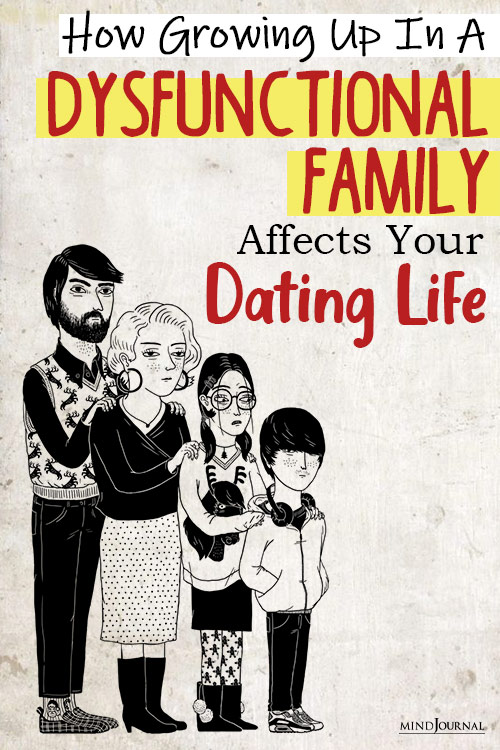
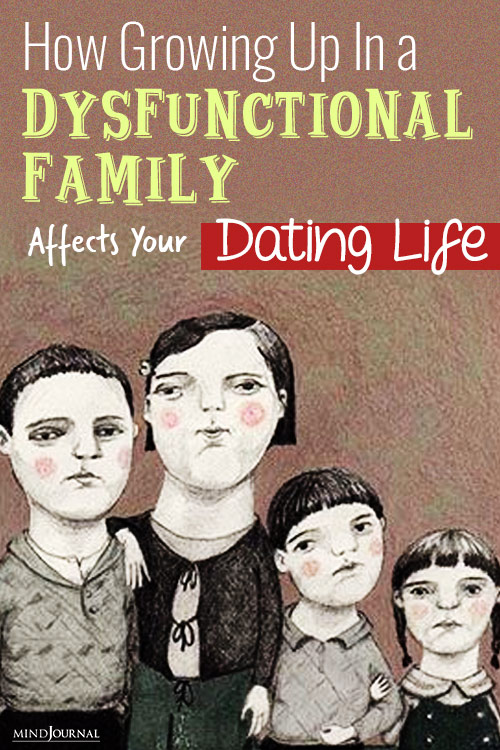
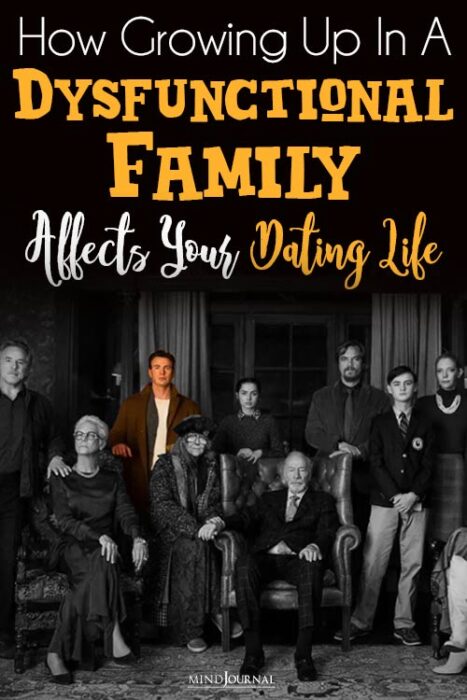
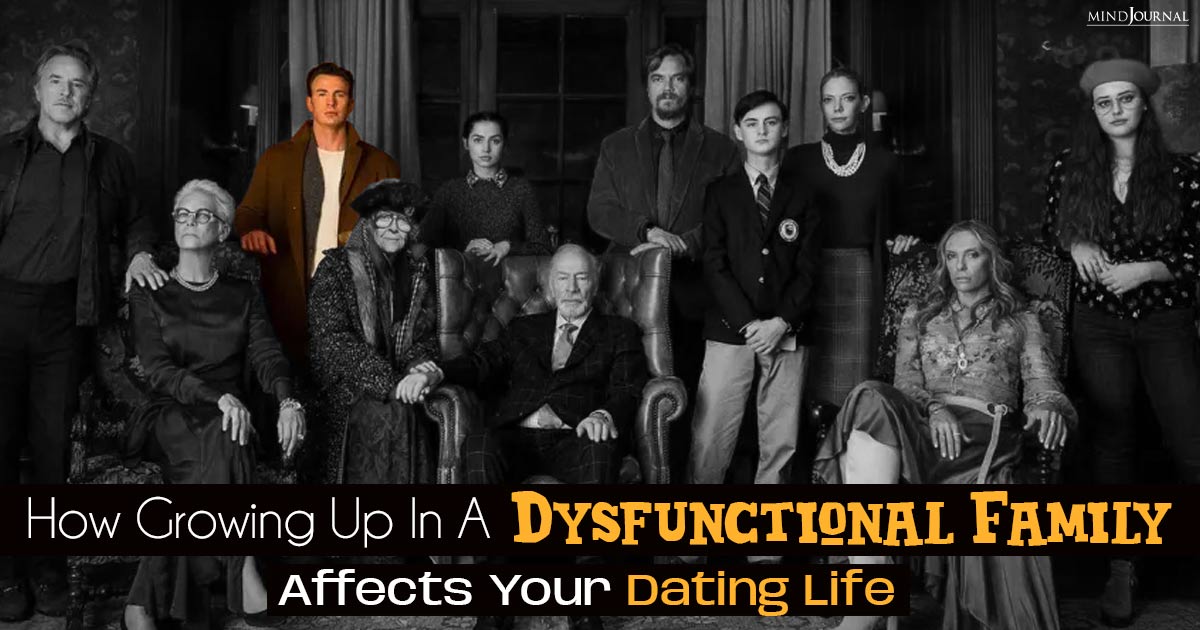






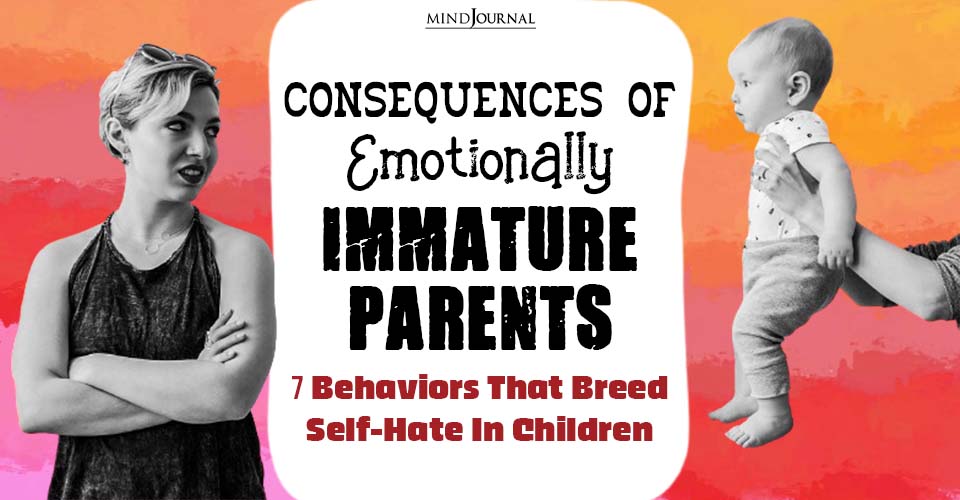
Leave a Reply
You must be logged in to post a comment.